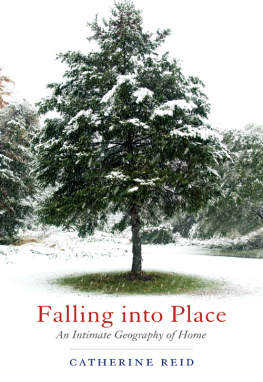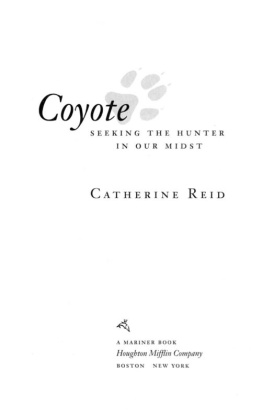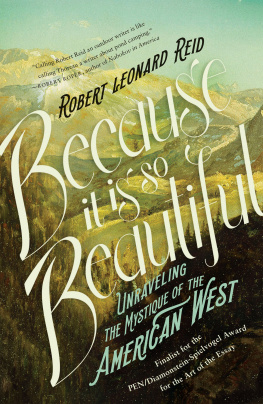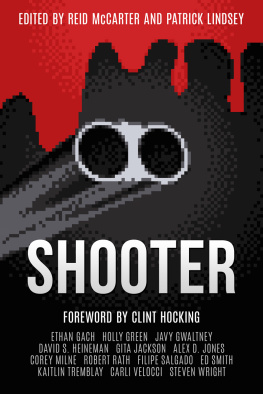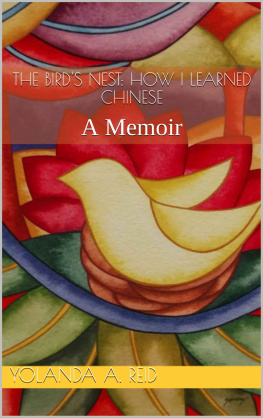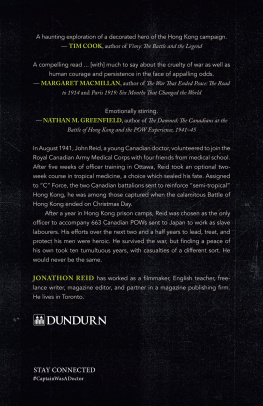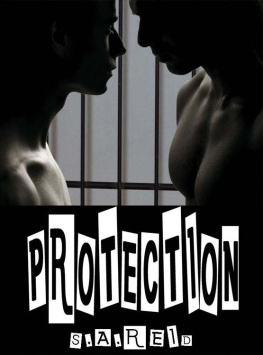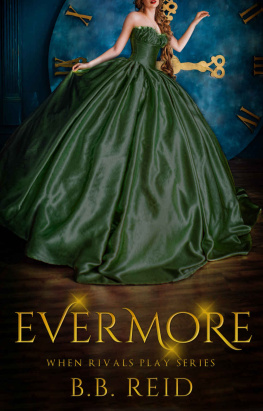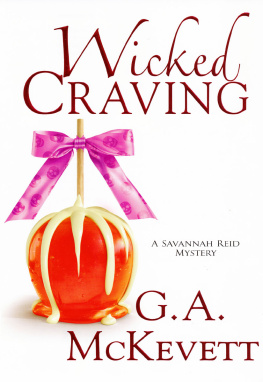
To the memory of my grandmother
H. Ruth Dwelley
(19042005)
and to Holly Iglesias
Oh, earth, you are too wonderful for anybody to realize you. Do any human beings ever realize life while they live itevery, every minute?
FROM EMILY S SOLILOQUY IN OUR TOWN,
BY THORNTON WILDER
Song Heart Rail
ICE UNFURLS FROM THE window in the steam of morning sun, and we move into the day with coffee, with dreams, with whatever scenes we can remember from the night. Weve had this ritual since we first woke up together, a way to linger over the life we cohabit in sleep, though our very different imaginations mean we never fully share it. My dreams are fairly straightforward, a reliving of earlier dramas, while Hollyscinematic and multilayeredare part of the reason I read little fiction these days. It would be tough to find action wilder than her subconscious produces.
I tell her how I moved between worlds when an owl called in my dream and was still calling as I awakened. A second owl answered from deeper in the pines, a pair of great horned owls, keeping track of each other. I could feel them in a night sharp with stars and bitter air and knew the nesting had begun, their eggs timed to open on a cold February day.
Holly laughs; she cant believe that owls incubate eggs under a blanket of snow. She is more amused, however, at my selective hearing, that a noise I care about might wake me while another will not. She makes her point by updating me on her son, who is seaming together the pieces after an awful rift with his dad. Im not sure why she is bringing this up now, and then I get it: She talked on the phone with him in the night, and I never even heard her rush from the bed to the kitchen. I hadnt caught that other sound that gladdens my lifethe tenor of her voice when she talks to one of her kids, like the softening air of April in a house still locked in winters chill.
I slept through it all until the hooting of that owl.

I understand the mechanics of hearing; I even know most of the vocabularythe tiny ear bones of hammer, anvil, and stirrup that vibrate in response to a sound wave; the fluid-filled cochlea that registers those vibrations; the hairs that relay the messages along nerve cells to the brain. I understand how discerning we are, too; that the sounds we prefer are the ones our bodies know best, like our fondness for the iambic foot that beats our heart rhythms.
But not all sound enters through our ears, at least not in my understanding of the world. I cant explain how it happens, how some sounds catch us and others dont, but its on my mind when I show up for the first meeting of the Wetland Birds Project, believing that, as a volunteer, I will simply head out to some designated site with binoculars and a bird guide, make a list of what I hear, and then go home for lunch. But its not that simple. First I will have to pass a quiz. I will have to sit inside a small room with other would-be volunteers and identify birds solely by their songs. To prepare, were each given a tape of fifty likely calls and told to come back in several weeks for the test.
At home, I pull on headphones and close my eyes. Almost immediately Im back inside the wildlife refuge I frequented when living in North Florida, surrounded by the jostle and bicker of ducks and egrets in an orgy of feasting before the days heat hardens the salt flats. Coots and moorhens whinny as they skitter in and out of the reeds. Herons and ibis clonk and grunt through the shallows, jabbing and shoving with a roughness they will repeat at dusk, when they fly into already crowded trees, hundreds of ungainly purple-black or white birds, elbowing a space in the dark crowns of oak and cypress.
I have to stop the tape. I had never thought about the ways the refuge and its noises might have crept into my own life. An upheaval in my days as a graduate student at Florida State, and I would head for the Gulf for the quiet of endless flat water. Yet in that land where oak and marsh meet pine islands and sea, even the fiddler crabs scrabble at high speed, and the alligator groans sound restless and haunting. All that resonance must have seeped into my cells. In a land teeming with the most primitive of needseat, sleep, mate, shove, shit, scratch, pulethe sounds had to have entered me, permeating skin and lungs, ratcheting joy into full-bodied exuberance, a tumbling taking place in the same weeks when Hollys and my paths first crossed, she, too, a new graduate student, she, too, attending Quaker Meeting, she, too, on the editorial board of a newly launched literary journal.
Here in western Massachusetts, where we moved several years later, everything is quieter, at least on the surfacethe woods, the ponds, the fumbling, my heart. Most of the time, I like the familiarity of it; I like having to work to find the source of some noise. But sometimes the silence confuses me; I miss the bump of bodies, the thrash of wings and feet, the wrangling of high-volume Carolina wrens. Here, a great blue heron feeds by itself, and we nod at the shared solemnity. A raven calls from a rocky ridge, and we listen as though to a sage.
This tape recording, however, suggests that north-south distinctions cant tell the whole story, that the wetlands contain a world of sound that I havent fully experienced. I rewind the tape and start again. This time I find myself in a mosquito-filled dawn, the kind of hours when few of us choose to visit such sites, yet my body responds with a hunger to see and smell such a place, to know what lifts from the cattails and stirs from the silt.
I open my eyes and see the cat pacing in front of me, her eyes focused on my ears. I hear Hollys laugh and realize I repeated the hooded mergansers call out loud, awww, whaaa, a drawn-out, guttural sound, conjuring a creature more reptilian than avian, something low-bellied and unable to get airborne. As I compare the list of names against the calls I just heard, I imagine the birds cries drifting over people living close to them, sleepers exposed in the deepest hours of their dreams. I see how impulse might grip them later in a day, having nothing to do with their workplaces, their gene pools, their lists of chores to be done. I imagine artists and musicians, drifting toward swamps before dawn and finding new themes for their work in the way air is sucked and poured by these elusive, secretive birds.
A few days later, a friend comes to visit, puts on a new CD, and I hear such a process made real. Composer Lee Hyla has interwoven ivory-billed woodpecker and piano and baritone. The birds hard cry is a percussive surpriselike the high false note of a clarinet, as Audubon once wroteand the sound takes us to the southern swamps and old-growth forests that the bird last inhabited. While the bird is probably extinct, its voice never again to be heard in the wild, for the moment, here it is, in this room, a call provided to Hyla by the Smithsonian, and maybe finding a place right now, inside each of us, to come forth sometime later when we are least aware of the reason.

Late-winter storms have left a foot of snow where I should be seeing garden, and I pass my free time with the headphones on, repeating voices I hadnt learned as a kid. Its a competitive thing, wanting to do well on the quiz, but mostly its an odd experience, listening to a call isolated from the bird itself, with no hint of habitat or season, no sense of whether Im looking into the crown of a tree, a tangle of marsh grass, or the scrub at the edge of a meadow. Its simply a call and then a mans voice, reciting the birds name, as disconnected from its source as listening to a heartbeat and not taking into account breath and hair and skin.

